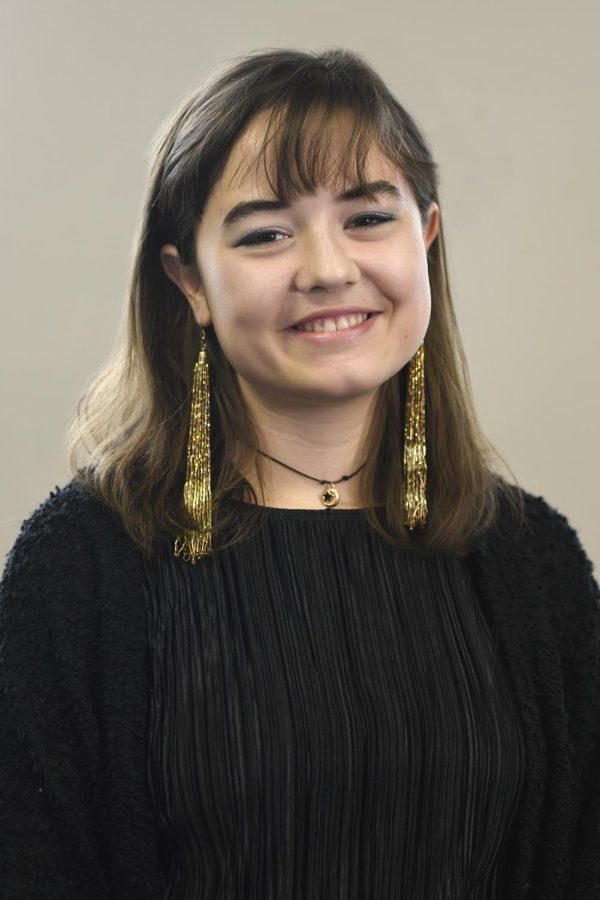OPINION: We can’t rest on our (river’s) laurels
March 3, 2019
I’ve been closer than ever to the Cuyahoga River this semester. I never expected it to turn out this way, but when you’re an intern at the Wick Poetry Center and the 50th anniversary of the river’s burning is coming up… well, you end up hiking in the Cuyahoga Valley National Park in the rain, observing the remnants of the canal and the rushing of the water.
Yes, that’s right — the river burning. I’d love to think everyone knows this story (Randy Newman certainly made sure none of us Ohioans would ever forget it) but I know there are some people — perhaps my age, or even younger — who don’t know that this ever happened.
A river, full of water, oil and pollutants, caught fire on June 22, 1969. The impossible, the blending of fire and its opposite element, seemed to rise beyond the natural world on that day. The very baseline of what we knew to be the order of things was disrupted, and, though I wasn’t around that day or year, I have to believe we were embarrassed too. What else would have allowed this moment to be a catalyst for the Cuyahoga cleanup — the passing of an act by Congress that would eventually give way to the creation of the Environmental Protection Agency? We had to be somewhat ashamed − it would have cleared the way for a righting of wrongs.
Now, of course, you might not know that. The whole thing seems to be a piece of impossible Ohio history, and can seem removed from the present (after all, Great Lakes Brewing Company has beer themed after the event). Here in Kent, we’re due to present and host part of a festival commemorating the fire and the effort put in after the fact.
Who can deny that the river has been, in a way, saved? In a 2009 NPR story, Dan Bobkoff reported that pollution-averse fish were in great numbers in the water. “Some parts of the river near Akron, Ohio, still have problems with sewage and runoff, but in much of the Cuyahoga, beavers, herons and even bald eagles thrive,” Bobkoff wrote.
In fact, when I visited the park, I saw an eagle myself. Perched on a tree, it was eating something — probably a fish. I remember remarking to my hiking buddy, the Wick’s Charles Malone, that I felt strange standing there. The eagle was so close, and here I was — in a normal environment, on a normal day. Both of us just existing.
But I remember, too, seeing a spot in the river where a manmade drop off caused whirlpools to collect anything that floated down the river to be held there, spinning and spinning in the water. Basketballs, plastic, and what I thought might have been a shoe or a bottle twirled and twirled in the greenish eddies.
The river has been saved, but our job is not done. It never will be. According to the Cuyahoga Valley National Park’s website, parts of the Cuyahoga are still listed as “impaired waters.” On the River’s Area of Concern website, impairments such as “Restrictions on Fish Consumption” and “Loss of Fish Habitat” are posted next to plans to remedy them. They aren’t the only ones.
It might feel wonderful to celebrate ourselves, to acknowledge all the progress we’ve made toward the river’s health — and I do think this is necessary. We need to take the time to celebrate our environment — but it’s important to remember we are not finished. There is work to be done, and if we forget that we may as well forget the pain that was fought through to get the Cuyahoga where it is today.
I think about those spinning plastics often. The beauty of the river was not diminished — in powerful moments of nature, I only think about its ability to take back whatever we throw at it, but I did feel a sad sort of responsibility for the things there. Sure, they weren’t mine, but they may as well have been. After all, do I ever really know where something goes once I toss it into a recycling bin? I can only hope not there, not in the body of the river, not in this place that means so much to Ohio — this place to which we still owe our time.
Cameron Gorman is a columnist. Contact her at [email protected].

















